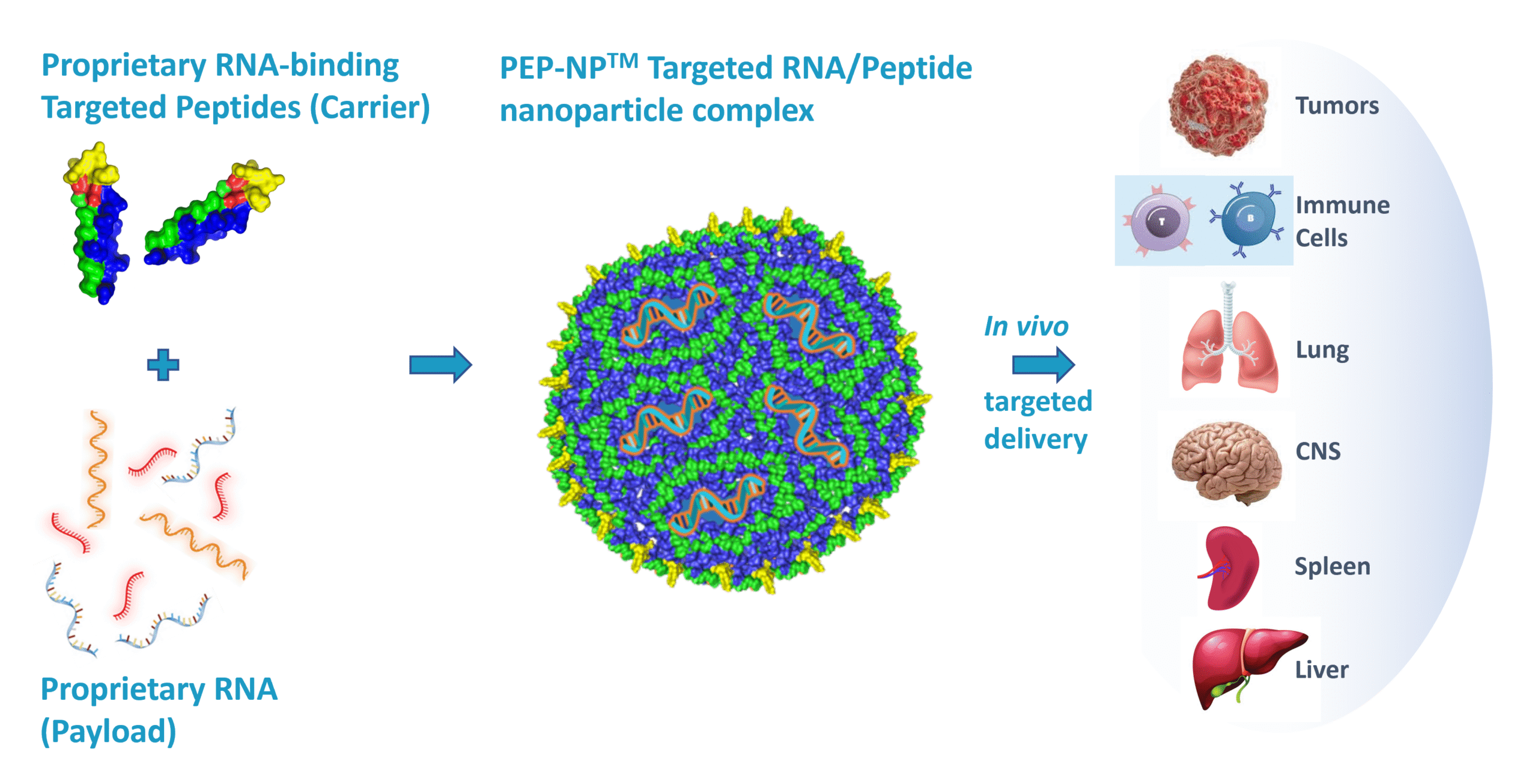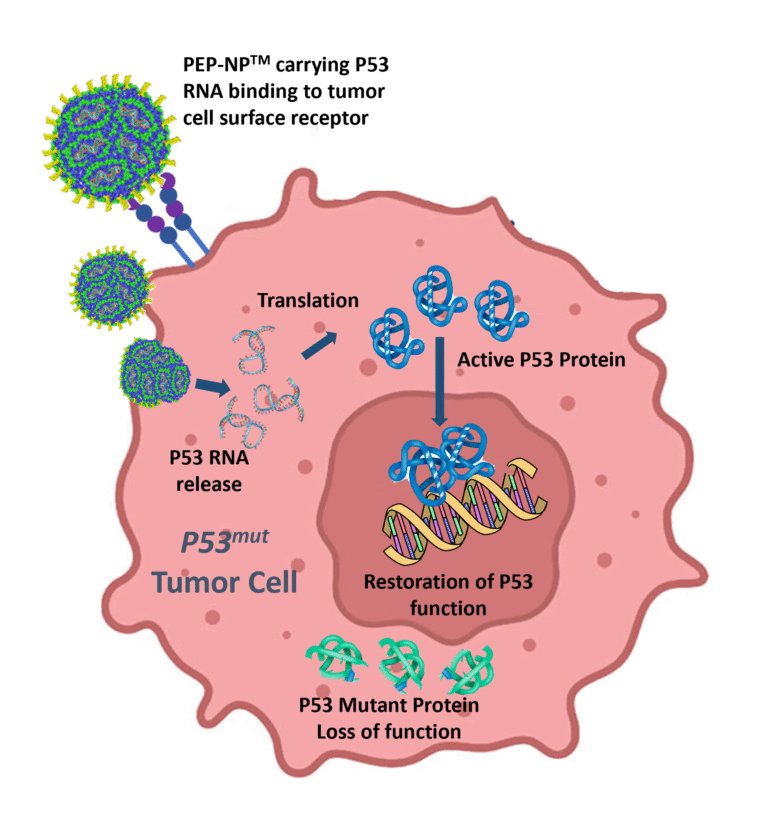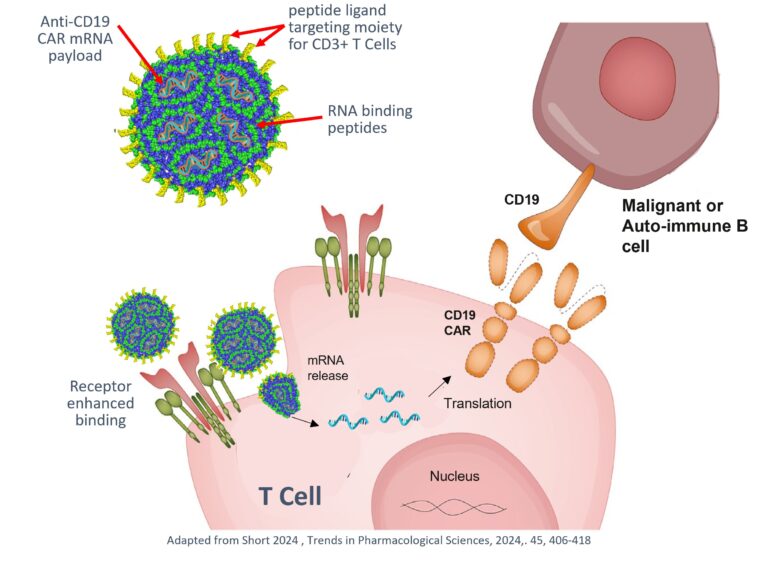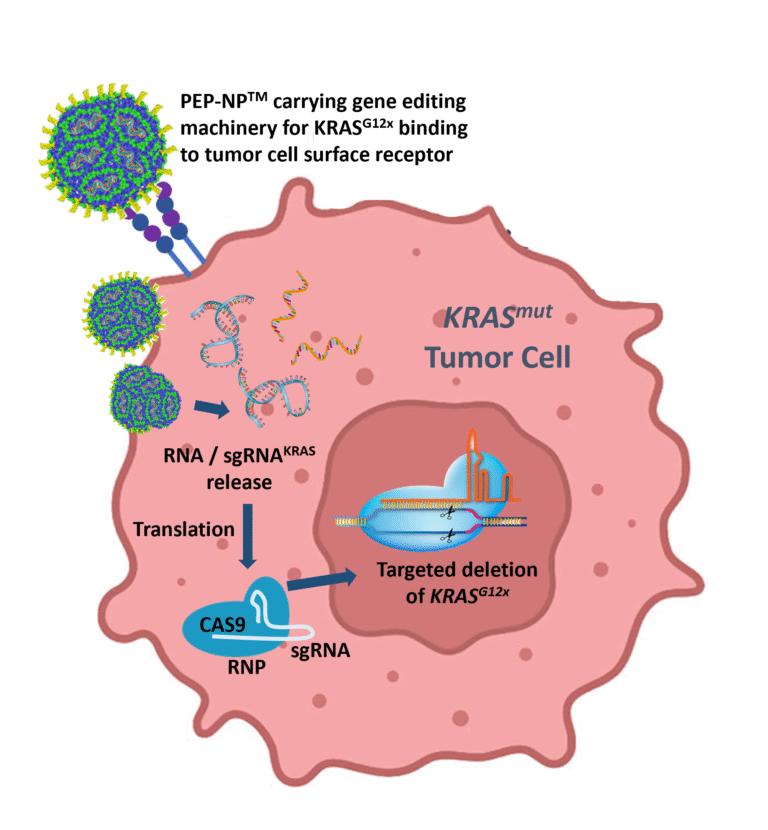Our Technology
PEP-NP™ Targeting System
Aanastra’s PEP-NP™ peptide nanoparticle system is designed to deliver RNA to the true source of disease—mutated or deleted genes that drive pathology, not just their secondary effects. By custom-selecting targeting peptides (using AI and experimentation), we enable efficient, repeatable delivery, bypassing off-target toxicity, immune barriers, and downstream signaling traps.
- Targetable to organs, tissues, and cells at the genetic origin of disease
- Bypasses endosomal entrappment relying on a novel mechanism for cell entry
- Bypasses liver entrappment unless specifically targeted to the liver
- Ensures repeated, safe dosing for a broad range of nucleic acid molecules without immunogenicity
- A best-in-class nucleic acid delivery platform

AANASTRA’S PROGRAMS
Tumor Suppressor Rescue (TSG-RESCUE™, TSG-RESQ™)

Restores the lost function of mutated tumor suppressor genes like p53, the “Guardian of the Genome,” the most broadly mutated Tumor Suppressor occurring in 50% of all cancers, a major driver, and a marker of poor prognosis, with no successful targeting strategy for approximately 400,000 new individuals every year in the US alone.
Our technology delivers functional RNA exactly where it’s needed, preventing redundancy and resistance.
This new therapeutic approach to treat p53 mutations and alterations results in strong inhibition and regression of tumors in animal models as a single-agent therapy as well as in combination with other cancer therapies.
Our strategy can lead to a broad pipeline first targeting p53 and then moving to other Tumor Suppressors.
In vivo CAR T (PEP-CAR™)

Chimeric Antigen Receptor (CAR) T cell therapy has revolutionized hematologic cancer treatment and shows promise for autoimmune diseases, but ex vivo CAR T faces challenges including complex manufacturing, scalability issues, high costs, and safety concerns from lymphodepletion.
In vivo CAR T generation with lentiviral or lipid nanoparticle vectors expands accessibility but is limited by challenges in repeat dosing due to immunogenicity and liver toxicity. Aanastra’s peptide-based nanocarrier PEP-CAR™, targeting CD3 receptors, enables efficient in vivo engineering of T cells to express anti-CD19 CAR with demonstrated efficacy in mice—rapid depletion of CD19+ B cells and safe, repeated dosing for long-term therapy.
PEP-CAR™ offers a scalable, accessible alternative likely to surpass ex vivo approaches, with broad applicability in hematologic cancers and autoimmune diseases, and flexible targeting potential beyond CD19 to expand immune cell therapies.
Oncogene Editing/Deletion (ONCOEDIT™)

Uses gene editing or silencing to eliminate oncogene mutations (e.g. KRAS G12D/V/C), confronting uncontrolled proliferation at the source. KRAS is the most frequently mutated Oncogene and a major driver of cancers with approximately 110,00 new individuals every year in US alone with G12D or G12V mutations.
Small molecules are in development but drug resistance remains a common problem.
This new root-cause approach results in strong inhibition and regression of tumors with very few treatments, halts cancer’s development of alternate signaling pathways, preventing resistance that plagues small molecule and downstream therapies.
Our approach to targeted oncogene deletion can lead to a broad pipeline, first targeting KRAS mutations and then moving to other Oncogenes.
Genetic Disease Applications
Restores the deficient gene/protein (e.g. Factor VIII) or deletes disease-driving targets (e.g. PCSK9) directly in affected tissue, from a single root-cause intervention. Our data in these applications also demonstrates the flexibility and efficiency of our technology to target genetic diseases outside of cancer.
Why Aanastra?
Aanastra’s therapies strike at the core genetic drivers of disease—ending the cycle of resistance and relapse, and creating possibilities where indirect therapies cannot.
